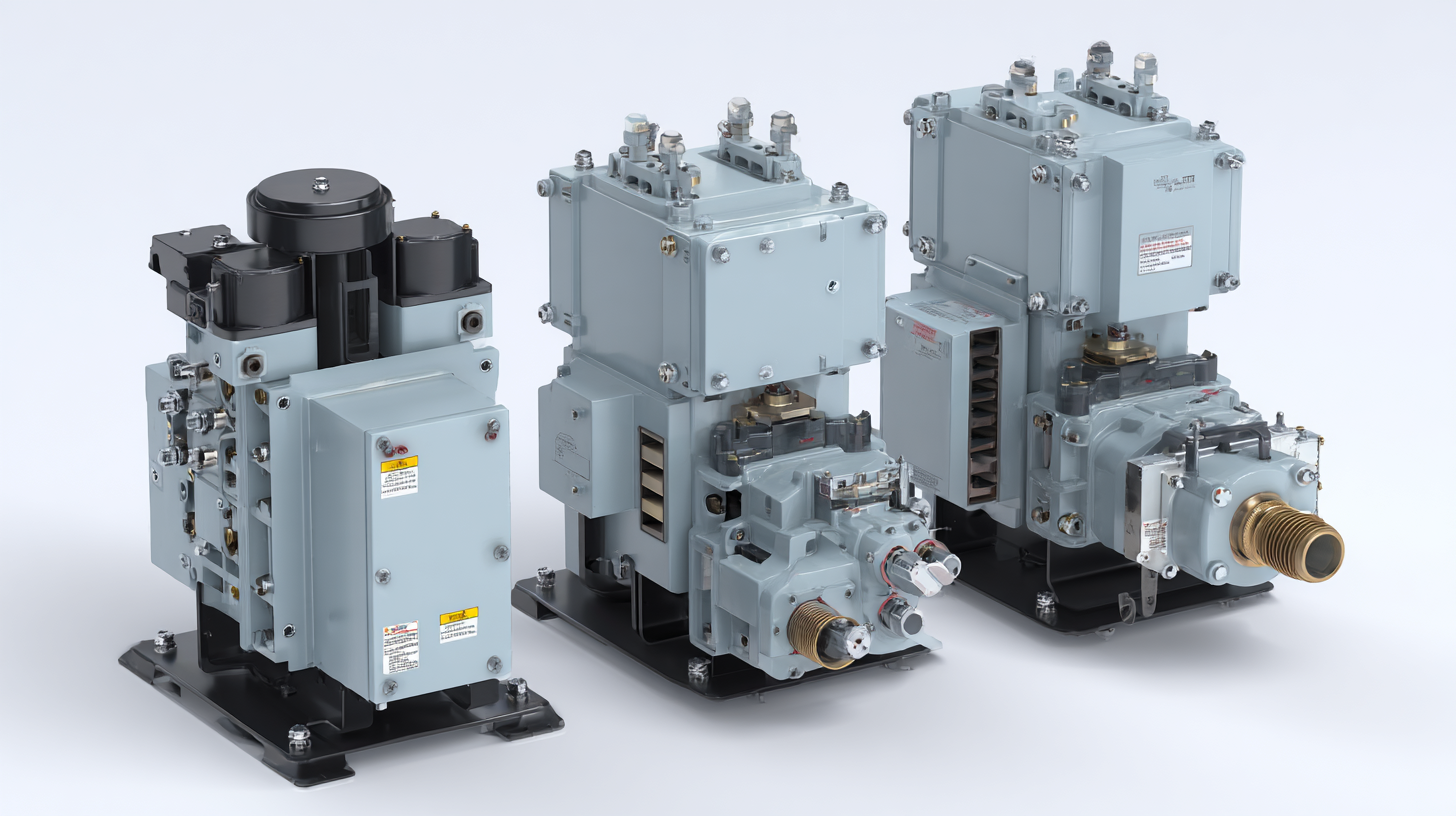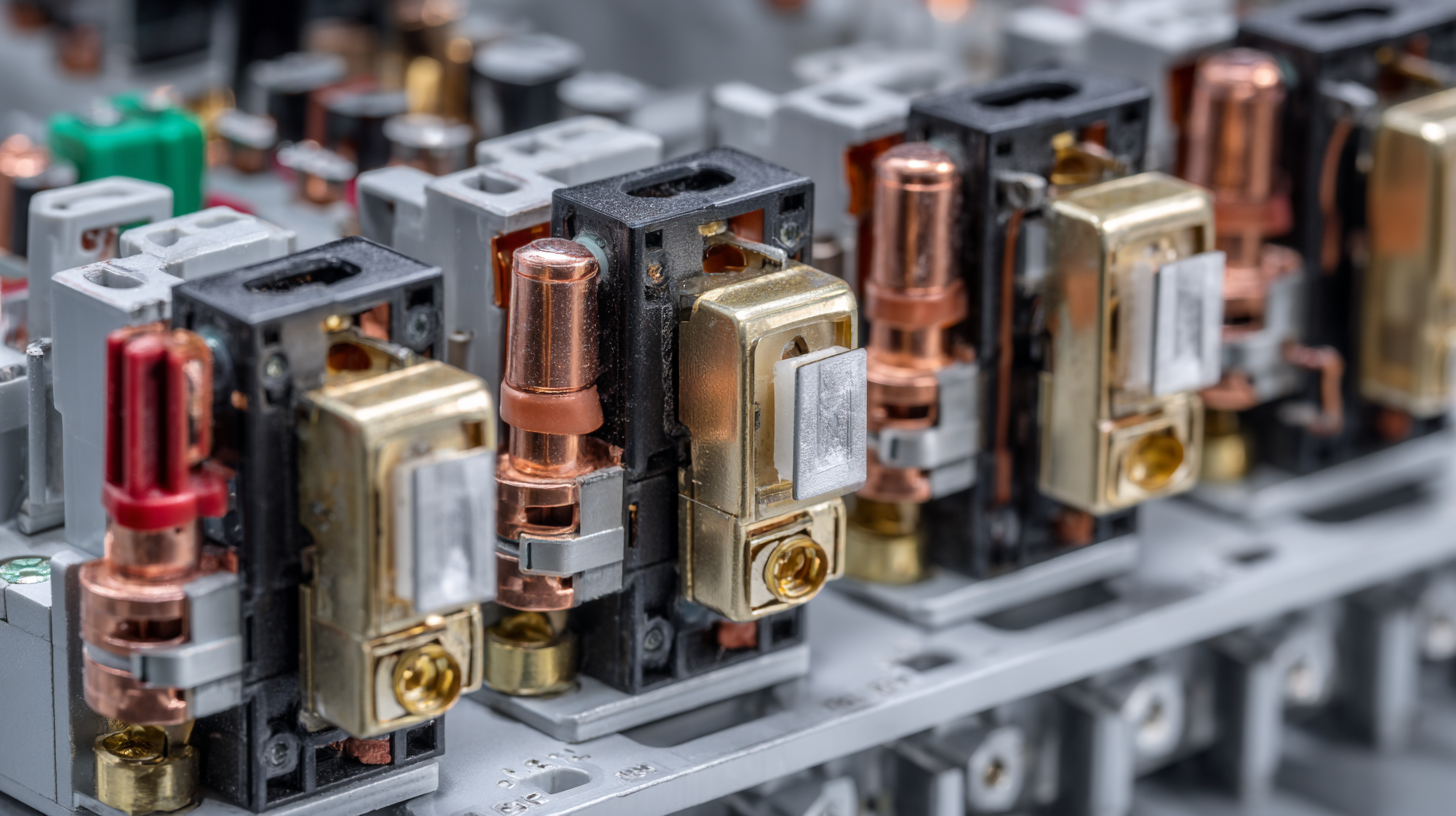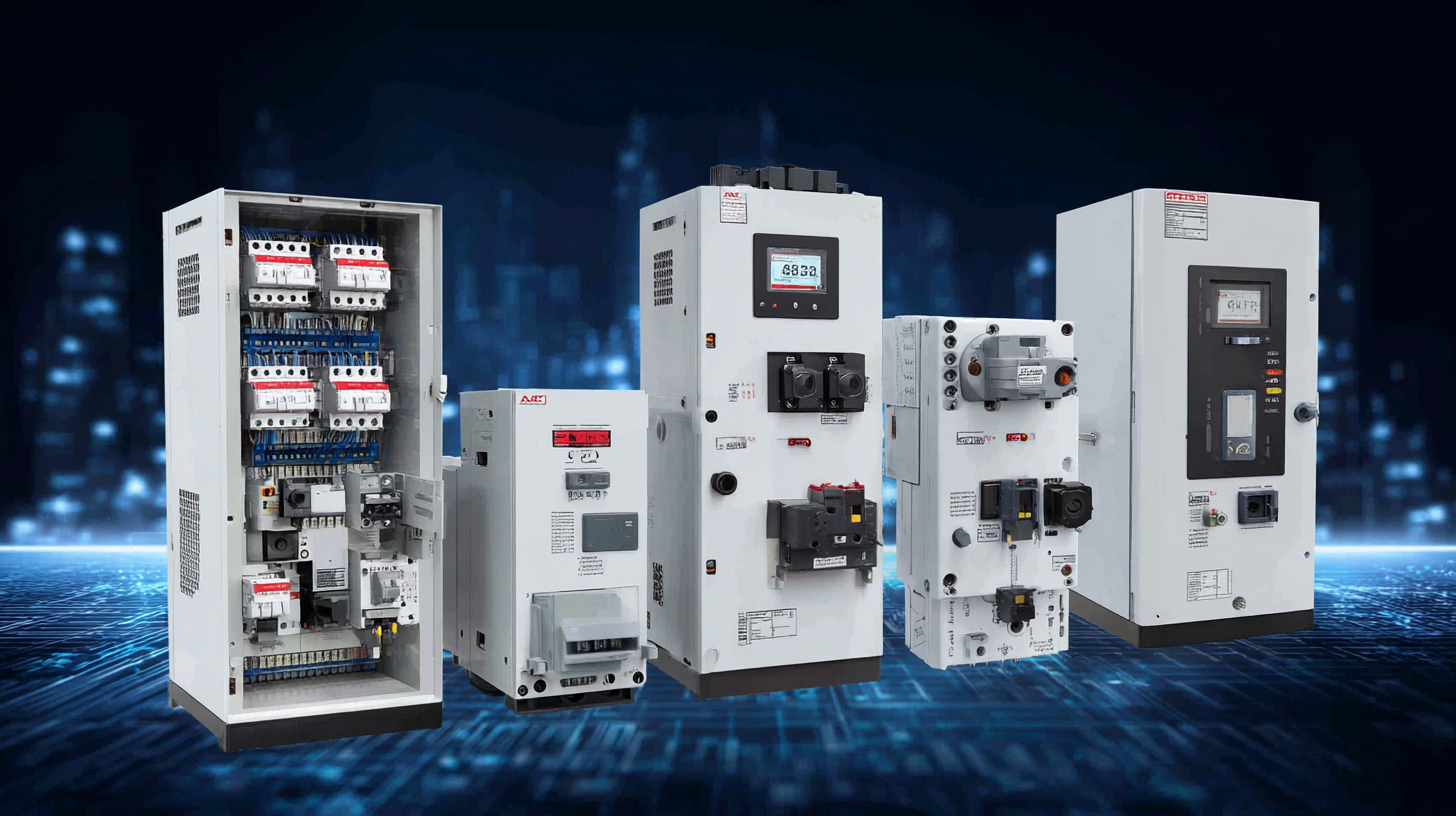2025 Industry Trends Revealed 5 Reasons Why Best AC Contactors Will Dominate the Market
As we look ahead to 2025, the HVAC industry is set to experience significant shifts, particularly in the realm of AC contactors. According to a recent report by MarketsandMarkets, the global market for AC contactors is projected to grow at a compound annual growth rate (CAGR) of 6.2% between 2022 and 2027, driven by increasing demands for energy efficiency and smart technology integration in residential and commercial applications. In this dynamic landscape, understanding the five key reasons why the best AC contactors will dominate the market is essential for industry professionals looking to stay competitive. With advancements in automation, the shift toward sustainability, and the rise of IoT-enabled devices, the AC contactor market is ripe for innovation, making it imperative for stakeholders to adapt and evolve their strategies accordingly.

Top Features That Set the Best AC Contactors Apart from Their Competitors
In 2025, the HVAC industry is set to experience significant advancements, particularly in the domain of AC contactors. Leading manufacturers are focusing on enhanced reliability, energy efficiency, and smart technology integration as key differentiators. According to a recent report by MarketsandMarkets, the global AC contactor market is projected to grow from $3.2 billion in 2021 to $4.5 billion by 2026, driven by the rapid adoption of energy-efficient solutions across residential and commercial sectors.
One standout feature of the best AC contactors in the market is their advanced thermal management systems, which help prevent overheating and extend lifespan. Data gathered by the International Energy Agency suggests that improving electrical components' thermal performance can lead to energy savings of up to 20%. Additionally, the integration of IoT technology is revolutionizing maintenance practices; smart contactors can communicate performance data in real-time, enabling predictive maintenance and reducing downtime, ultimately preserving operational efficiency. This trend illustrates that the most competitive AC contactors are not just components but essential elements in the future of energy management systems.

Understanding the Importance of Energy Efficiency in AC Contactors
As the global push for energy efficiency intensifies, the role of AC contactors in HVAC systems becomes ever more crucial. According to the International Energy Agency (IEA), buildings account for approximately 36% of global energy consumption, making energy-efficient technology in this sector a top priority. With advancements in AC contactor design, manufacturers are integrating features that optimize energy usage, leading to significant reductions in both operational costs and greenhouse gas emissions.
Recent studies indicate that high-quality AC contactors can improve energy efficiency by up to 20% compared to older models. This efficiency not only translates into lower energy bills for consumers but also meets increasingly stringent regulations on energy consumption. The U.S. Department of Energy's projections estimate that enhancing system performance through the use of smart contactors could save the nation billions in energy costs annually. This shift towards smarter, more reliable solutions positions the best AC contactors to dominate the market, as both residential and commercial sectors seek to balance performance with sustainability.
2025 Industry Trends - Why Best AC Contactors Will Dominate the Market
| Aspect | Trend | Impact on Market | Energy Efficiency Benefit |
|---|---|---|---|
| Technological Advancements | Increased automation and smart controls | Enhanced reliability and performance | Optimized energy usage |
| Sustainability Practices | Focus on eco-friendly materials | Growing consumer preference for green products | Reduced carbon footprint |
| Market Demand | Increase in residential and commercial cooling needs | Higher market growth potential | Improved efficiency standards |
| Regulatory Changes | Stricter energy efficiency regulations | Increased compliance challenges for manufacturers | Higher energy savings for end users |
| Consumer Awareness | Greater focus on energy-efficient appliances | Shift towards energy star-rated products | Lower electricity bills |
Comparative Analysis of Pricing Strategies for Leading AC Contactor Brands
As the HVAC industry evolves, a comparative analysis of pricing strategies for leading brands of AC contactors reveals key insights into market dynamics. The study of pricing approaches sheds light on how these companies position themselves to meet the growing demand for energy-efficient solutions. Factors such as production costs, technological advancements, and competitive pressures play critical roles in a brand's pricing strategy. Understanding these strategies is essential, not only for industry professionals but also for consumers seeking the best value for their investments.

Moreover, the integration of advanced materials, such as DCA and emimMS ionic liquids, in the development of membrane contactors demonstrates the innovation at play within the market. These materials offer efficient separation of CO2, addressing environmental concerns while enhancing the performance of AC systems. By evaluating the effectiveness of these technologies alongside pricing strategies, stakeholders can gain a comprehensive view of what drives market leadership in the AC contactor segment, ultimately shaping future trends and consumer choices.
Consumer Preferences: What Users Look for in AC Contactors
As the HVAC industry evolves, consumer preferences are steering the market towards smarter, more efficient AC contactors. Today’s users prioritize energy efficiency, ease of use, and reliability when selecting cooling systems. Recent data indicates that up to 70% of homeowners are inclined to choose products that integrate seamlessly with their smart home devices, highlighting a significant trend towards automated energy management.
Consumers are also valuing direct-to-consumer (DTC) brands that prioritize transparency and customer engagement. This shift is changing perceptions around utilities, pushing manufacturers to offer more tailored solutions that cater to individual needs. According to industry reports, brands that focus on direct communication with customers have seen a 30% increase in brand loyalty, demonstrating the importance of customer relationships in the purchasing process.
Tips: When selecting an AC contactor, look for energy ratings and reviews from verified customers to ensure reliability and performance. Additionally, consider brands that offer robust customer support and clear warranty programs, which can enhance long-term satisfaction and confidence in your purchase.
Future Innovations: Trends Shaping the Next Generation of AC Contactors
The air conditioning industry is poised for significant growth, with the global market for AC contactors projected to reach $4.2 billion by 2025, according to a recent report by MarketsandMarkets. As environmental concerns rise and energy efficiency becomes paramount, the next generation of AC contactors will prioritize innovations that enhance performance while reducing energy consumption. These advancements are crucial, as the U.S. Department of Energy estimates that HVAC systems account for nearly 30% of total energy use in residential buildings.
One of the most exciting trends shaping the future of AC contactors is the integration of smart technology. Smart contactors are being developed to ensure optimal operation and monitoring through IoT connectivity, which allows for real-time data analysis and predictive maintenance. According to a research study by Grand View Research, the smart HVAC market is expected to grow at a CAGR of 30% from 2021 to 2028, reflecting growing demand for intelligent solutions in climate control. This transition not only improves energy savings but also enhances user experience, making smart AC contactors a dominant player in the evolving landscape of HVAC technology.
